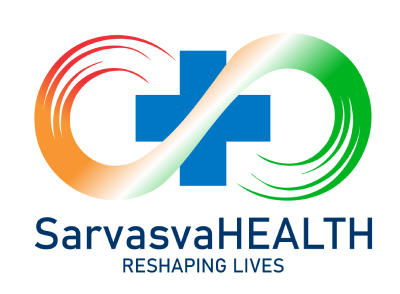What is Chemotherapy?
Chemotherapy, commonly known as chemo, is a type of treatment in which a chemical or a combination of medicines is administered (either orally or by other routes such as intravenous, subcutaneous, etc.) to kill cancer cells. More focused medicines or immunotherapy are delivered with modern procedures and advancements in medical research, which may have fewer side effects and better activity on cancer cells.
How will chemotherapy be used to treat cancer?
- Chemotherapy involves the use of chemicals that destroy cancer cells.
- It halts or inhibits the development of malignant cells, which have a propensity to proliferate rapidly.
- It also aids in tumor shrinkage and may lower the likelihood of recurrence.
In what circumstances will chemotherapy be administered?
In the following cases, your medical staff may recommend chemotherapy:
Curative
- Curative chemotherapy is administered in order to cure the illness.
- It can be used alone to treat blood cancer, for example.
- It can be administered before or after surgery, such as in the case of breast cancer.
- It may be used with radiation, as in the case of cervical cancer.
Palliative
- Palliative chemotherapy is administered for the rest of life.
- It is used to treat the disease and/or the symptoms induced by the condition.
- Chemotherapy does not cure the illness in this circumstance.
How will chemotherapy be administered to me?
Chemotherapy is often administered in a variety of methods. The following are some of the most common:
- Orally, in which you will be administered pills, capsules, or liquids.
- Injected through a shot in the muscle of your arm, thigh, hip, or under the skin in the muscular part of your stomach, leg, or arm.
- IV (intravenous) that is given directly into your vein.
- Intraperitoneal (IP) chemotherapy, in which chemotherapy is administered directly to key organs such as the colon, liver, and stomach.
- Intra-arterial (IA), in which chemotherapy is delivered directly into the artery that leads directly to the cancer.
How frequently is chemotherapy administered?
The chemotherapy treatment schedule will differ from person to person and will be determined by the following factors:
- The type of cancer
- The stage of the disease
- The reason for chemotherapy, whether to cure cancer, stop its development or relieve symptoms
- The type of chemotherapy provided
- How your body responds to the treatment
Typically, your doctor will go through the therapy program in great detail.
– In the event of solid tumors, the bulk of chemotherapy will be administered four to six times at three-week intervals.
– Chemotherapy for blood malignancies is often administered over a lengthy period of time.
– Palliative chemotherapy might have a flexible schedule depending on the management of the disease and associated complications.
How long will I require chemotherapy?
Chemotherapy is often administered at regular intervals as part of a program, sometimes known as a cycle.
- This might be a single medicine or a combination of pharmaceuticals given on one or more days, with no additional therapy for a few days or weeks.
- In certain circumstances, the therapy may be administered for many days in a row, followed by a few days off.
- Your doctor and care team will select the dosage based on the type of medicine being used.
Some medications function best with a few days of therapy followed by rest, whilst others require a longer period of therapy.
What are the dos and don’ts of chemotherapy treatment?
Do’s
- Speak to your doctor about taking the flu vaccine before you begin chemotherapy.
- Speak to your doctor if you have been trying to get pregnant or know that you are pregnant.
- Eat as per the nutritional guidelines shared by us.
- Sleep for 7 to 8 hours to boost your immunity and overall health.
- Exercise as advised by your doctor.
- Try and meditate to reduce stress, ease anxiety and fear about the treatment.
- Be regular in your treatment and follow the schedule as per your doctor’s advice.
- Do not delay or stop treatment on your own due to fear of side effects, as it will affect the outcome of the treatment.
- In case of any side effects, your doctors will take care of the same by either modifying the chemotherapy schedule or changing the drugs or dosages.
- If you notice any side effects, even minor, immediately inform your caretaker.
Don’ts
- Avoid being near people who are sick or have any form of infection
- While receiving chemotherapy, do not take any injections for other health issues without consulting your oncologist
- Do not try to get pregnant
- Avoid handling babies
- Avoid substance abuse, alcohol, and tobacco
- Do not expose yourself too much to the sun
Chemotherapy Clinics:
We provide the best healthcare facilities for Chemotherapy. Our multispecialty clinics are situated in the following locations:
Our Main Centre for Chemotherapy Treatment in Dadar, Mumbai
Our Centre’s for Chemotherapy
One can visit any of our branches nearby to your location for the best overall healthcare treatment of Chemotherapy. Our experts not only provide superior quality care using the latest technologies but also provide complete treatment along with rehabilitation facilities and post-operative care.

